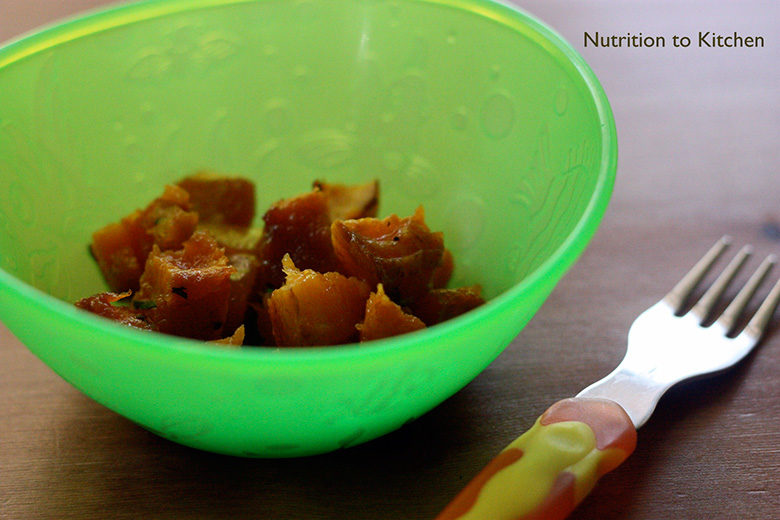
Feeding your toddler really could be a full-time job. You want him or her to get all their nutrients and eat a variety of food groups, while limiting processed foods. Combine that with the toddler's personality: one day they'll eat ravenously and enjoy everything, the next day it'll just be crackers and milk (oh yes, I speak from experience). It can be exhausting!
Here are a few things to keep in mind to not stress yourself out (or at least reduce the stress):
1. Don't make it a power struggle.
If your kid doesn't want to eat, don't push it. The last thing you want to do is negotiate, use food as a reward, or bribe. You also don't want to start any food issues, like feeling like they always have to clean their plate, or treat food as punishment (Example: "If you don't eat [this food], you don't get dessert").
2. Offer variety, and keep offering despite rejections.
My daughter always rejects apples, but after seeing my aunt eat a slice of apple and not offer her any, she pointed to it and said, "Apple!" My aunt gave a slice to her, and what do you know? She ate half the apple! It usually takes about 10 exposures to a certain food before a toddler will try something new, so keep putting items on her plate even though she doesn't touch it. One day, she will.
3. Toddlers regulate their appetite.
If they feel hungry, they'll eat. If they don't, they won't. They know when they're hungry and when they're not, unlike some adults. Just try to offer them food every three hours to prevent meltdowns. And if they don't eat a snack, they might feel hungry and eat at the next mealtime.
4. Limit distractions.
Turn off the TV, take cell phones and iPads out of the toddler's view, and provide a relaxed feeding environment for the little one. The attention span of a 2-year-old, for example, is really limited, so you want the attention to be on eating, not toys.
5. Don't overreact.
If your toddler throws food on the floor, for example, it's not the end of the world (At this time, I let my dog in and clean up the mess!). These little ones are just getting their coordination down, so spills and messes are all part of the territory.
6. "Food jags" are normal.
One day your kid will eat like a champion. The next couple of days, he'll only want Cheerios and bananas. This is normal. As long as your toddler is following his or her growth curve, and your doctor is not worried about his or her growth, you need not worry.
I try to "take it easy" when my toddler goes through some of these issues. I know, it's tough, because not only am I a mom, I'm a dietitian too. One day, she'll eat a whole cup of this roasted butternut squash, more than plenty of veggies, brown rice, and salmon. And the next day she'll forego a yummy breakfast of blueberry pancakes and turkey sausage, opting for plain Cheerios with milk.
This can be a stressful time but it's normal and you're not alone! Try to keep it fun. There's a lot of new things to introduce to your toddler and it's fun discovering things they love!
Here's a tried-and-true roasted butternut squash recipe that works for my youngin'. Sometimes she eats a few helpings of this as a snack (a serving size for a toddler is usually one tablespoon of cooked veggies per year of age; so a 2-year-old would have a two-tablespoon veggie serving). And sometimes she eats this with some protein and brown rice for dinner. I make it only once or twice a month because I don't want to bore her. But she loves this flavor, and at least I know that whenever I do make it, she'll gobble it up!
Roasted Butternut Squash
Recipe by Tram Le, MS, RD
Makes about 1 1/2 cups
Ingredients
12 oz. butternut squash, peeled and cubed
½ tsp. fresh rosemary, finely chopped
¼ tsp. kosher salt
A few cracks of freshly cracked black pepper (optional)
1 tbsp. olive oil
Directions
- Preheat oven to 425°.
- In a medium baking dish, toss together all ingredients. Roast butternut squash, turning squash every 10 to 15 minutes, for about 35 minutes, until fork-tender.
- Cut up butternut squash into appropriate sizes for your youngster and cool before eating.




